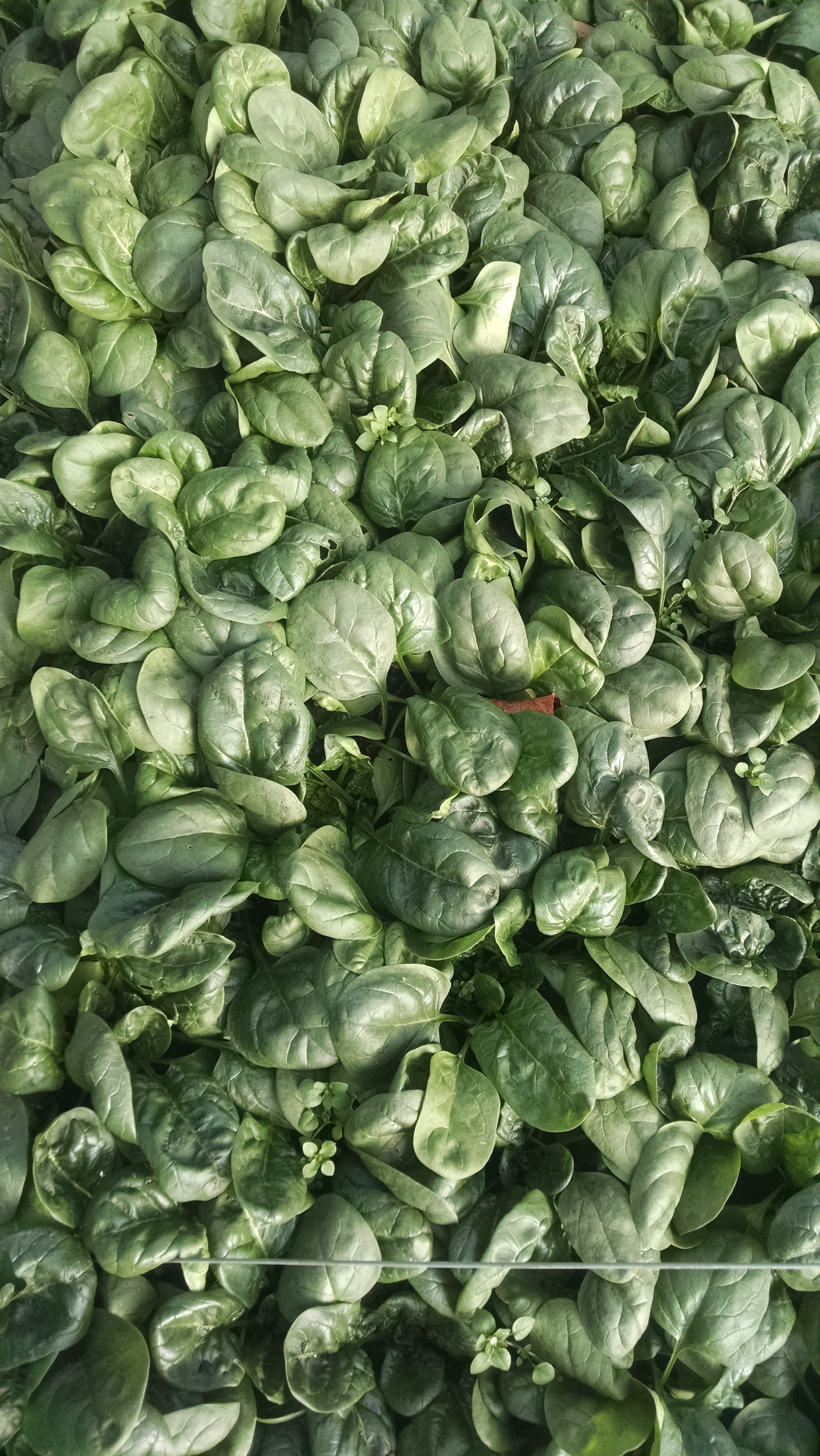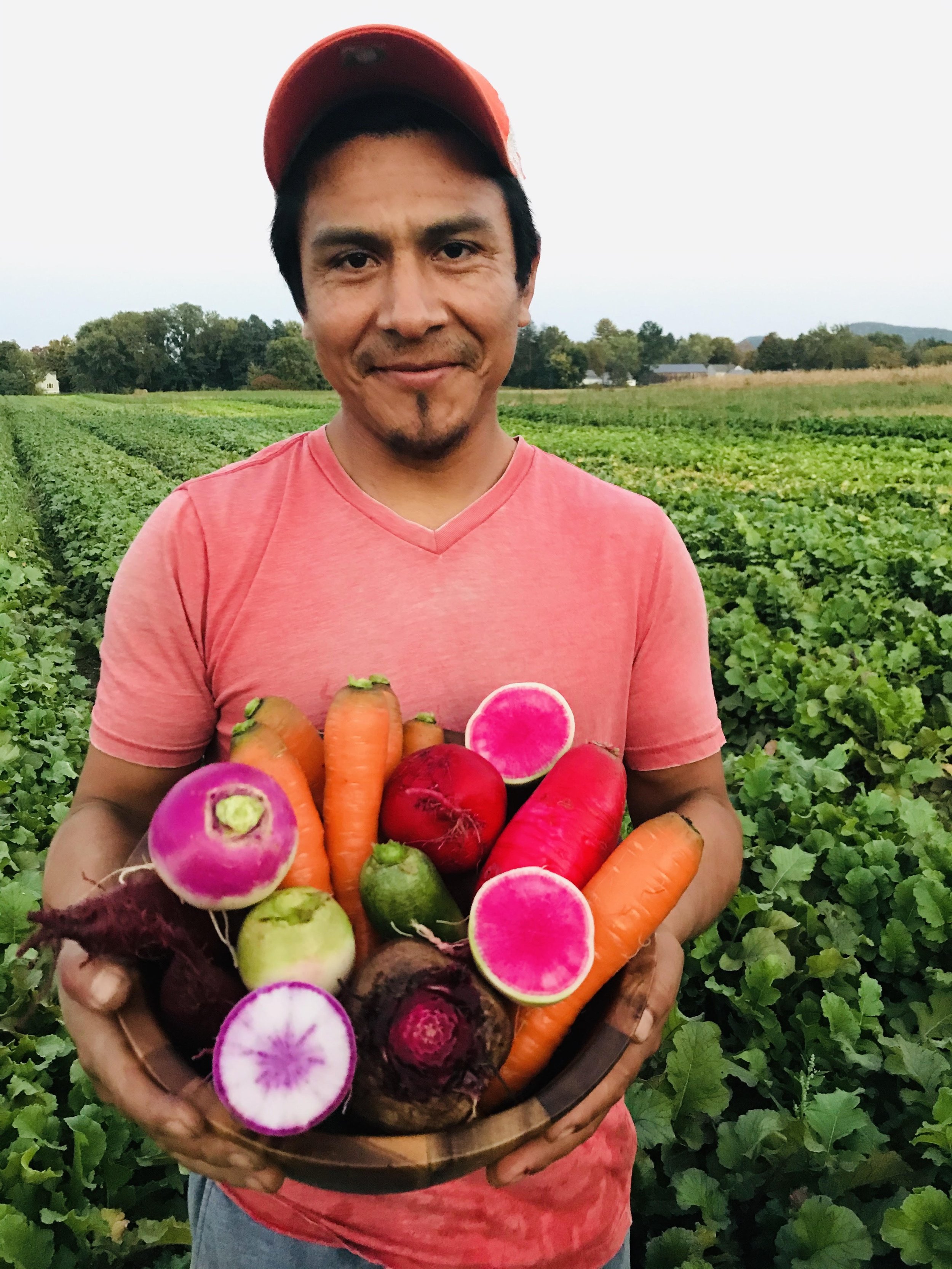Food Connects has been supplying the Simple Gifts Farm store with regionally-produced products since March of 2021. The partnership expanded this April when Food Connects began distributing fresh produce grown by Simple Gifts to other buyers in the area. We’re thrilled about this new, mutually-beneficial partnership centered around a love for fresh, local food.
We had a chance to talk to Jeremy Barker Plotkin, Founder of Simple Gifts Farm, about the farm’s unique story and inspiring approach to working with their animals, land, and community.
How was Simple Gifts Farm started? What was its inspiration?
Simple Gifts Farm started in 1999 when I moved to Massachusetts from Maine. I had just finished graduate school (in agriculture) and wanted to produce something more tangible. I started farming at the New England Small Farm Institute and bootstrapped the business from a half-acre up to 5 acres of vegetable production. In 2006, I moved the operation to Amherst and was joined by my business partner, Dave Tepfer. We took on the stewardship of the newly preserved North Amherst Community Farm. We met as interns at the Land Institute and have always been motivated by a desire to incorporate ecological principles into an integrated farm system (I run the vegetable cropping, and he raises livestock.). The North Amherst Community Farm property was the perfect site to also add a strong sense of community to our operation, as it is located within a residential area about a mile from UMass and was preserved by a tremendous effort from the community.
What makes your products unique?
My initial main marketing outlet was farmer's markets, so I have always been motivated to produce beautiful and flavorful vegetables that stand out amongst the other vendors. Salad greens and heirloom tomatoes are particular specialties of ours and really represent both a visual and culinary feast.
Can you tell us more about your approach to farming?
Our partnership was founded on the idea of rotating our land into pasture and using livestock to dramatically improve our soil health. Since 2019, we have taken our soil health program to another level as we are transitioning into organic no-till production. We are now at about 70% of our cropland in no-till production and are seeing definite improvements in the tilth of the soil. We are hopeful that this change will help us to adapt to increasing climate disruption by making our soils more resilient to extreme weather.
What is your favorite part of farming?
I love harvesting the produce; it is the moment that all of our hard work leads up to.
What is one of your favorite recipes you make with your produce?
During tomato season, I make a tomato-bread salad whenever I'm invited to a potluck or party. I typically use somewhat stale bread, broken up into pieces and then mixed with chopped heirloom tomatoes, balsamic vinegar, olive oil, olives, garlic, and basil. The bread soaks up all the juice, and it is delicious.
Why is buying and selling locally and the local food movement important to you?
I love the idea of keeping our food and our economy as localized as possible for sustainability reasons. Over the last couple of years, the value of a shorter supply chain has been made clear as local businesses really stepped up to keep their communities fed during the pandemic. I see this need as likely to increase in the years to come.
How does working with Food Connects help your business/what are you excited about in this partnership?
We mostly produce food for sale through our farm store, but we also enjoy doing a larger quantity of a few crops to round out our business. We have sold some of that extra produce to Whole Foods Market, but their corporate structure has become increasingly hard to deal with, and we increasingly feel that that outlet is at odds with our values. Working with Food Connects gives us the opportunity to provide crops that will strengthen the local food system. We are also using Food Connects to supply our farm store with products that we don't produce ourselves, so it feels like we are completing a circle.
Any events coming up or fun facts about your business/products?
We do a Front Porch Jam every month at our farm store and will be doing a Harvest Festival in September.
Anything else you would like me to feature? Anything that you are doing to respond to the COVID-19 crisis?
Our Farm Store became a real fixture locally during the early days of the pandemic. We brought in a lot of produce from other local farmers, went to online ordering only, and really felt moved by the huge level of support that we had during that time.




















